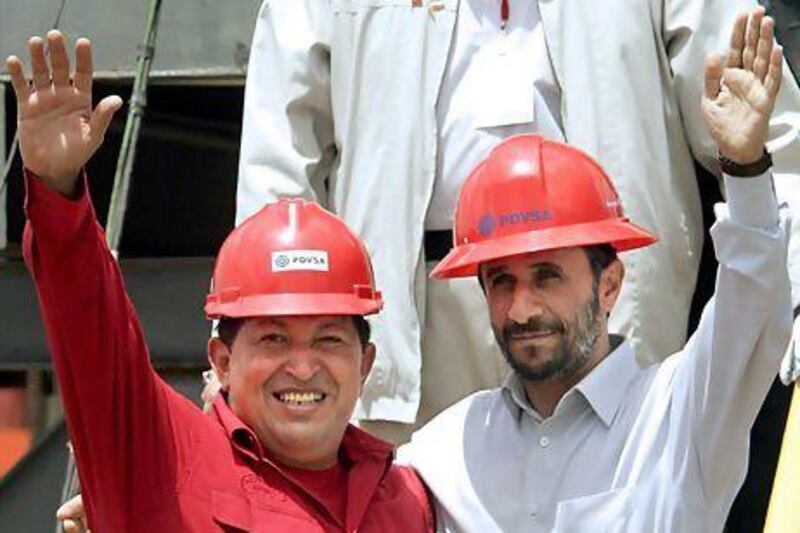This flamboyant showman was one of the seminal figures of 21st century oil, in the select company of Vladimir Putin, George W Bush, BP's Sir John Browne and the shale gas pioneer George Mitchell. Hugo Chávez created the conditions for the high oil prices at the start of this century.
The political left praised his redistribution of petrodollars to Venezuela's long-suffering poor.
His genuine charisma inspired both ordinary Venezuelans and admirers around the world. Yet Chávez, who died last Tuesday aged 58, leaves his country's oil industry in ruins.
The oil companies hated him, of course, for his resource nationalist policies - increasing tax burdens and nationalising much foreign investment in Venezuela. He inspired similar, if less extensive programmes in Argentina, Bolivia and Ecuador.
He terminated Venezuela's 1990s dream of challenging Saudi Arabia within Opec, and restrained production, starting the wild ride of oil prices from about $10 per barrel in 1998 to their $147 peak in 2008.
After the general strike of 2002-2003, he gutted the state company PDVSA, once one of the most admired national oil corporations, and production has fallen from 3.5 million barrels per day when he was elected, to 2.34 million bpd in February.
The Orinoco Belt holds an estimated 513 billion barrels of extra heavy, sticky oil, which would give Venezuela the world's largest reserves, but progress in developing it has been slow.
Now the country suffers from refinery explosions, power cuts and gas shortages, while ideological allies get cheap oil - worth US$500 million (Dh1.83 billion) annually to Nicaragua and up to $4bn billion to Cuba.
Chávez's "Bolivarian Revolution" (after his hero, the 19th century liberator Simón Bolívar) paid attention to Venezuela's slum dwellers, ignored by the established democratic parties. Recycling a unique flood of petrodollars achieved genuine reductions in poverty and improvements in health and education. But many of these gains were exorbitantly expensive.
Brazil's adult literacy programme cost $2.50 per learner - Venezuela's, almost $1,000, and it is not even clear that it improved literacy at all. Inflation, imports, shortages, crime rates and corruption soared; a new class of "boligarchs" made fortunes from insider connections and overvalued exchange rates.
Policymakers have gained a lot of experience over the past few years about how to avoid the "resource curse".
Brazil and Mexico have run successful poverty alleviation programmes but Venezuela failed to learn these lessons.
The economic consequences of Chávez were strikingly similar to those of his great friend and fellow oil-fuelled authoritarian, Iran's Mahmoud Ahmadinejad.
Perhaps the saddest thing about his policies is that they were neither sustainable nor new. Much of "Chavismo" was a re-hashing of failed Latin American populist and import substitution policies, dressed up with opposition to "neo-liberal" institutions, globalisation and the United States. Yet the US continues to be by far Venezuela's biggest oil customer. And Chávez's ideological soulmates around the world gave him a surprisingly easy ride on Venezuela's poor environmental record - obstructionism on climate change abroad, the world's cheapest petrol at home.
He largely dismantled the institutions of Venezuelan democracy, and stained his record by embracing tyrants such as Libya's Muammar Qaddafi and Syria's Bashar Al Assad.
Chávez's successor will have to balance economic stability, rebuilding the petroleum industry and meeting the genuine aspirations of the poor. The next president's decisions will have major consequences for Venezuelans - and world oil markets.
Robin Mills is the head of consulting at Manaar Energy, and the author of The Myth of the Oil Crisis and Capturing Carbon





